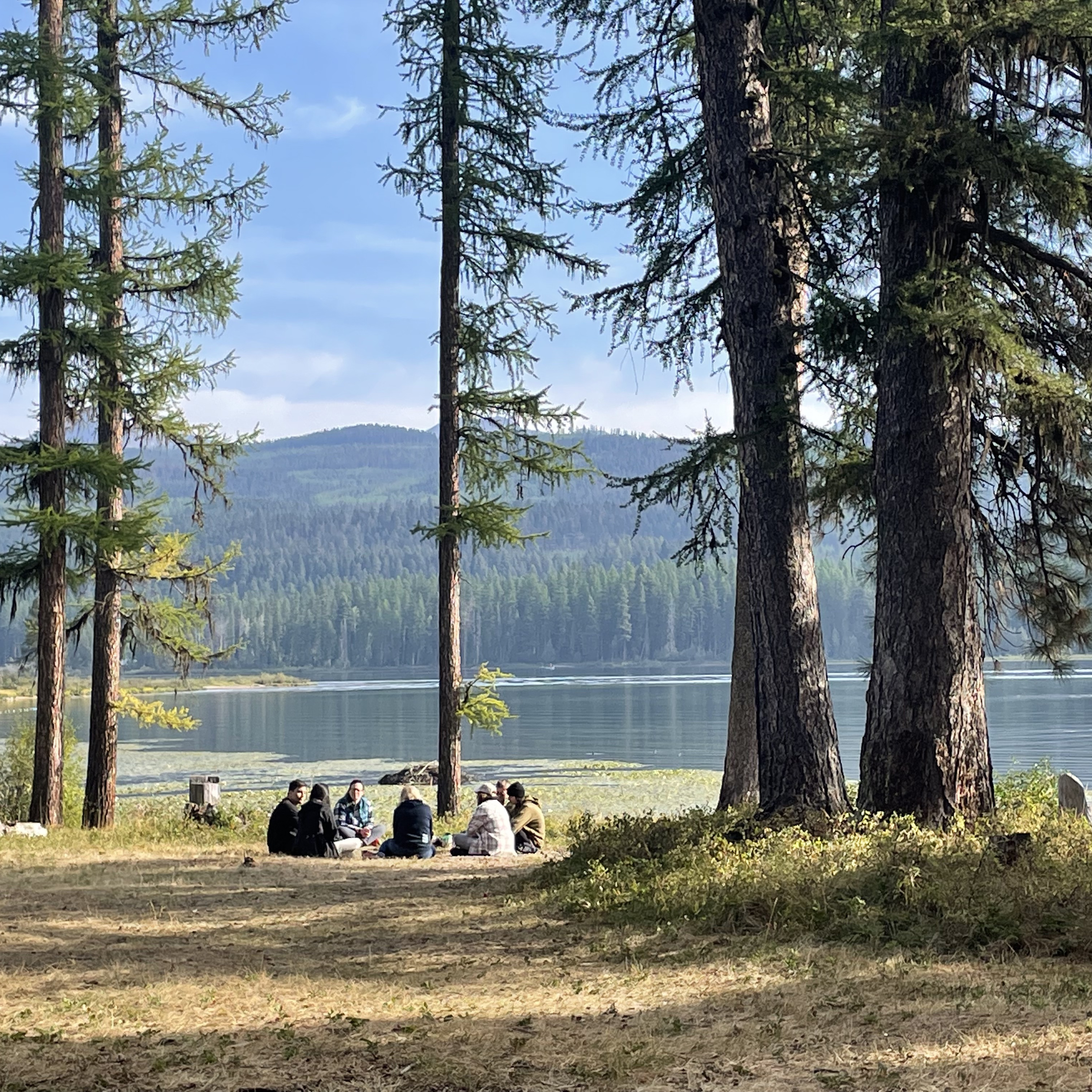Focus Areas
Environmental Studies offers a B.S. or B.A. degree, a minor, certificates & internships -- that blend humanities, social sciences & sciences with professional skills. We emphasize community engagement & environmental problem solving.
We offer focus areas that provide more in-depth mastery of environmental issues.
Faculty advisors: Robin Saha and Dan Spencer
Students in the Environmental Justice (EJ) focus area will develop the capacity for thoughtful and active participation in the quest for environmental and social justice. Students will gain in-depth understandings of a wide range of environmental injustices and the role of race, class, and gender in shaping quality of life, enjoyment of environmental amenities, and access to natural resources both domestically and internationally. Students will learn about the ways that business, government, financial institutions, faith-based groups, and the labor and environmental movements can work toward a more just and sustainable society.
Students must complete 18 credits in Environmental Justice courses, including Globalization, Justice, and the Environment (ENST 487) and Environmental Justice Issues and Solutions (ENST 489), and 12 credits of advisor-approved EJ-related courses, 9 credits of which should be upper division.
Recommended courses include: Earth Ethics (ENST 391); Native Plants Supervised Internship (ENST 396); Traditional Ecological Knowledge of Native Peoples (ENST 410); Race and Minorities (ANTY 121); Climate Change Ethics and Policy (CCS 449); Sustainable Cities (GPHY 421); Community and Regional Analysis (GPHY 468); Environment and Development (NRSM 475); Global Public Health Issues (PSCI 227); Race, Class and Gender (SOC 220); Social Stratification (SOC 325); and Sociology of Poverty (SOC 443).
Faculty contact: Rosalyn LaPier
Students take selected courses to understand the role of Indigenous Knowledge & Environmental Sustainability within the lives of historic and contemporary Native peoples and their communities.
More about Indigenous Knowledge & Environmental Sustainability
Faculty advisor: Len Broberg
The Pre-Law focus area of study is designed to prepare students for law school and a career in environmentally oriented legal and policy matters. Students focusing on environmental law must consult with the pre-law faculty advisor within environmental studies (Len Broberg) to design a suitable pre-law program. The pre-law focus area is a flexible program that allows students to strengthen their background within their area of interest.
Faculty advisor: Len Broberg
Students will develop interdisciplinary science literacy to qualify as environmental scientists. Students will consult with the Environmental Studies science advisor to design a course of study that includes at least 40 credits of a relevant mix of biology, ecology, soil science, chemistry, hydrology, geology, climatology, GIS and math. Students may double major or minor in one of the scientific disciplines on campus.
Faculty advisor: Phil Condon
Students focus on the careful reading of American Nature & Environmental Nonfiction Writing and the creative writing of their own work in the field. Students must complete ENST 335L and 373A (EVST 305L and 373); at least one 3 credit course at the 200-level or above in ENCR or LIT or JOUR; at least either one internship credit (Camas magazine, the Environmental Writing Institute, Wild Mercy Reading Series, or some other environmental publication); or one independent study credit ENST 492 (EVST 496), arranged with instructor in either original nature writing or in nature literature study.
Sustainability is a major organizing theme within Environmental Studies. Students focusing on this area will have opportunities to build project like straw bale walls, rain catchment systems, and solar panels; plant, grow and harvest organic food on a working farm; develop sustainable business concepts; and design, advocate for and fund greenhouse gas reduction plans on campus and in the community. Students will learn how to reduce our demands on the earth through increased resource efficiency and choosing simpler but more joyful lifestyles. Students complete 20 credits of advisor-approved courses and/or internships and may further focus their studies in these areas:
Sustainable Business
Faculty Advisor: Robin Saha
Students focus on creating and maintaining enterprises that meet social needs sustainably. Students may select 20 credits from courses in Business, Communications Studies, Climate Change Studies, Environmental Law, Geography, and Environmental Justice. Students are encouraged to intern with local businesses or the Sustainable Business Council. Students can obtain a Sustainable Business Strategy Certificate described at the UM School of Business web page. Double majors in EVST/Business are encouraged to take a minimum of five Management courses.
Environmental Pre-Law
Faculty advisor: Len Broberg
The Pre-Law focus area of study is designed to prepare students for law school and a career in environmentally oriented legal and policy matters. ENST 382 Environmental Law (offered spring semester) and ENST 367 Environmental Politics and Policies are core law courses recommended for students in this focus area. Students focusing on environmental law must consult with the pre-law faculty advisor within Environmental Studies (Len Broberg) to design a suitable pre-law program. The pre-law focus area is a flexible program that allows students to strengthen their background within their area of interest. More information is available: Prelaw program at the University of Montana.
Sustainable Food and Farming
Faculty advisors: Neva Hassanein and Josh Slotnick
Since 2000, the focus area on Sustainable Food and Farming within Environmental Studies has created a unique niche when it comes to studying this increasingly popular topic. We aim to educate future professionals, leaders, and innovators who can critically examine the food and agricultural system, and who can play a meaningful role in shaping a sustainable and resilient future, often in a community setting. Educated, undergraduates will be more to able to exercise the rights and responsibilities of food citizenship. Students must complete 6 supervised internship credits at the PEAS Farm (ENST 396), courses ENST 430 and 480, and 9 additional credits for advisor-approved courses or internships. These could include courses such as: Practicum in Sustainable Ag Education (ENST 494), ENSC 245N, (FOR 210N), ANSC 262 (FOR 362), NRSM 424 (FOR 424); NUTR 221N (HHP 236N); PHAR 324; ANTY 133H (ANTH 103H); GPHY 434 (GEOG 434).

